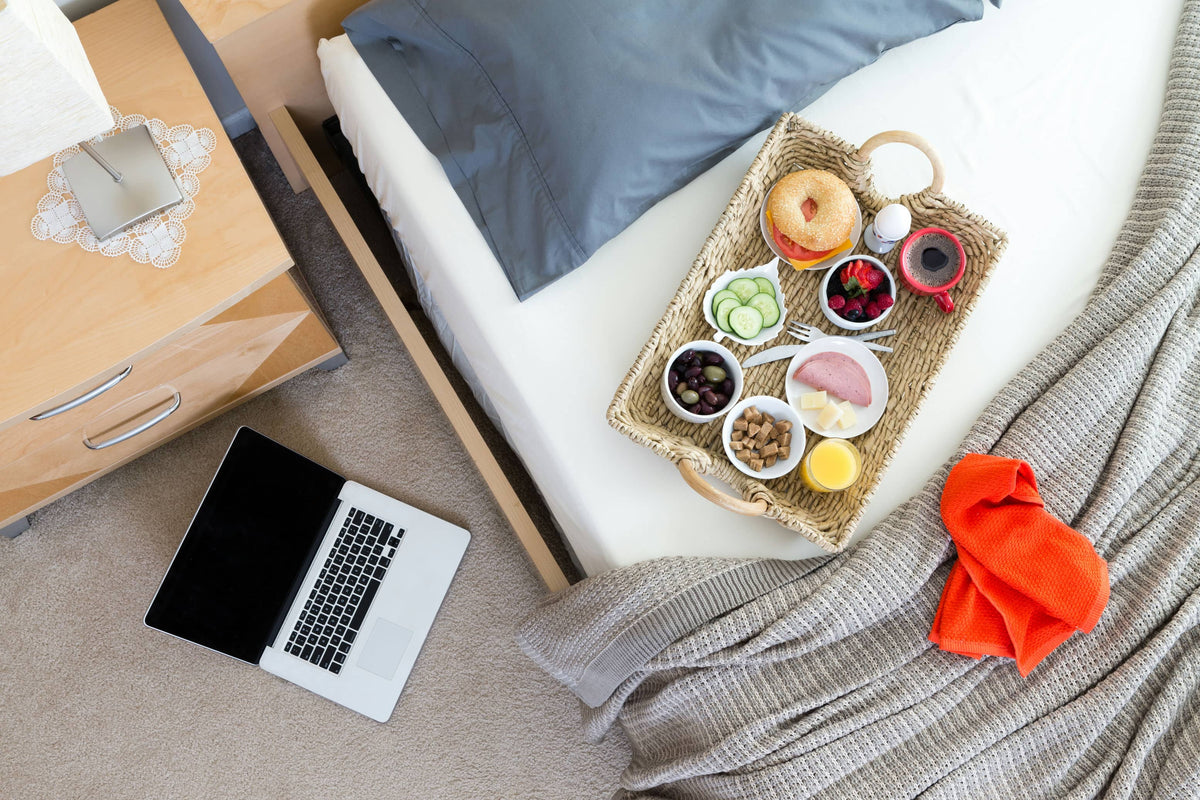
Why Sleep is More Important to Your Health Than Food
|
|
Time to read 3 min
|
|
Time to read 3 min
If someone asked you which was more important to your health and well-being, sleep or food, which would you choose? Most of us would probably choose to go a week without slumber and be able to eat, figuring it would be the safest bet when it came to staying amongst the living.
Yet the Scientific American has published studies that prove that we humans can go as long as 21 days without food, while other of their studies have shown that a person can only live for just over a week and a half without getting any sleep. If you went without eating for a week, you would be weak, quite a bit lighter, and most definitely hungry, but you wouldn’t even be close to being in the danger zone in regards to your chances of staying alive.
But depriving yourself of sleep for 7 days would leave you almost completely unable to function and getting dangerously close to losing your life. So why do we so consistently choose to sacrifice sleep to keep up with the ever-growing demands that our placed on our lives due to work, family, and social obligations? We tend to bargain with ourselves in order to feel as if we are making the most of the 24 hours we have in each day – giving up an hour or two of sleep to gain what we believe will be an additional hour or two of productivity?
The reality of the situation is that every bit of research that has been done regarding sleep deprivation and its effect on our bodies shows that even small amounts of sleep loss can have a significantly negative impact on our health, mood, cognitive ability, and productivity levels.
One study put the question of how much sleep we actually need to the test by placing participants in rooms without clocks or windows and telling them to sleep whenever they felt tired. An overwhelming 95% of those people slept between seven and eight hours each night, with another 2.5 % of them sleeping for over eight hours, and the remaining participants requiring less than seven hours per night. That means that only 1 out 40 people can function on less than 7 hours of sleep a night – and the chance of you being one of them is slim to none.
When you get at least 8 hours of sleep each night, you will soon find that you’ll feel better, be able to focus more effectively, manage your emotions and regulate your moods with ease, and just be overall thankful that you’ve made sleep a priority. Why give up something that can make you better at your job and an all-around better person for a couple of hours of late-night work that most likely won’t be of a caliber that can be used, anyway? The bottom line here is that you need more sleep!
Here are 3 simple (but effective) tips to help you get it:
Set an earlier bedtime (and stick with it!) Sounds pretty obvious, we know, but here’s the thing – you’re already getting up as late as you possibly can, right? That means if you want the benefits of getting more sleep, getting to bed earlier is your only alternative. Ritualize your bedtime and ditch the excuses you make for staying up later. Your body will thank you in the morning, guaranteed!
Wind yourself down at least 60 minutes before bedtime. Create a pre-bedtime ritual that is all about relaxation and getting your body (and mind) ready for sleep. Try having a warm cup of herbal tea, listening to soothing music, or reading a book that’s a bit on the dull side. When your mind and body are wound down and relaxed, you’ll find yourself slipping off to sleep much easier and (hopefully) earlier.
Get rid of the negativity and unresolved issues. If you find your mind racing when you crawl between the sheets and turn off the lights, try writing everything that is bothering you down just before bedtime. Studies have shown that if you leave issues and anxieties that are playing through your head on the paper before bed, you’ll leave them there and out of your memory, helping you to feel more accomplished and relaxed.